 Home page of the UKE?
Home page of the UKE?

Events
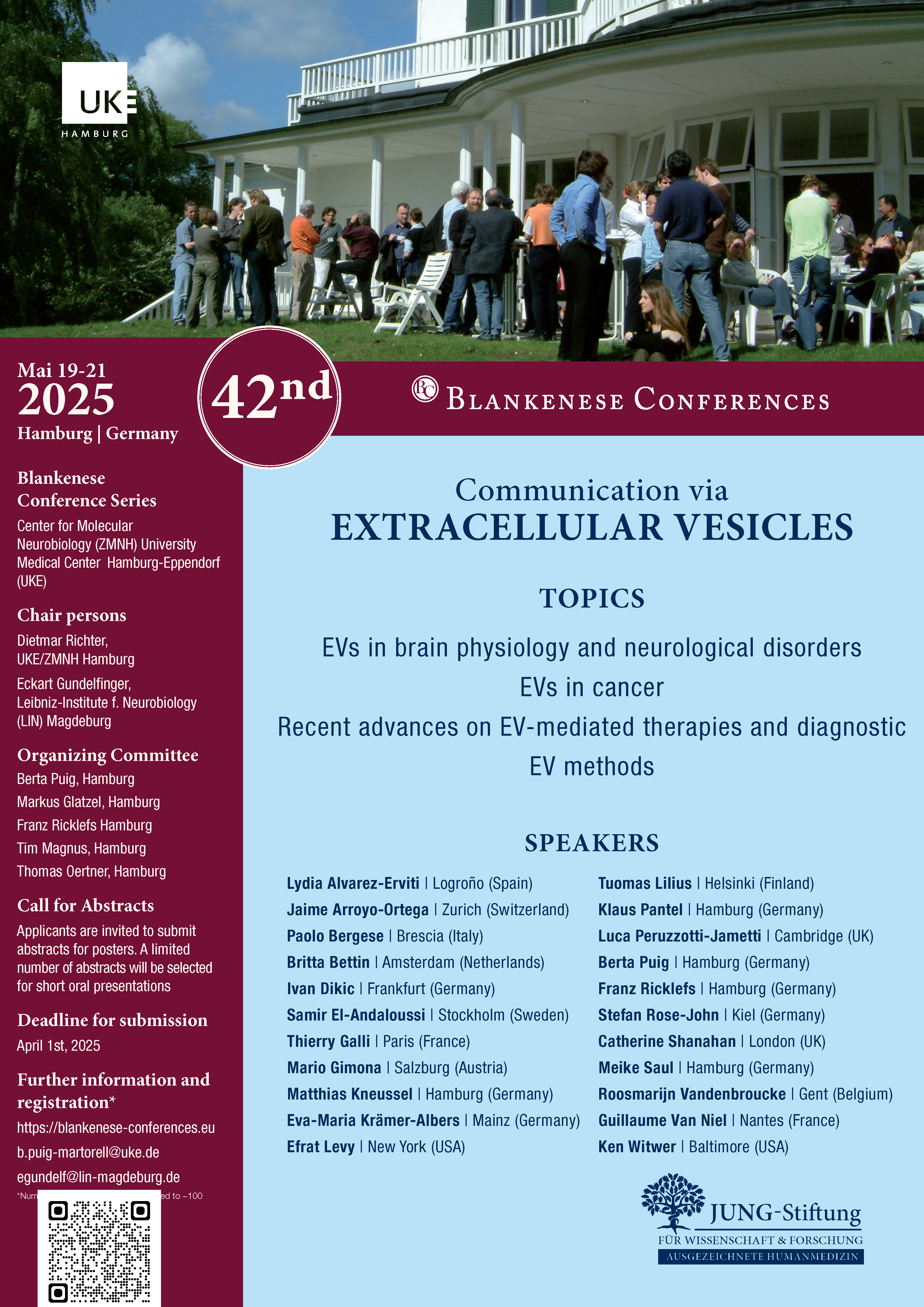
42nd Blankenese Conference
Communication via Extracellular Vesicles
Welcome to the 42nd Blankenese Conference 2025 "Communication via Extracellular Vesicles" taking place on May 19 – 21, 2025 at the Elsa Brandström-Haus in Hamburg, Germany.
About the conference
Extracellular vesicles (EVs) are important players in mediating material and information exchange between cells. They display remarkable diversity, both in their cellular origins and in the variety of cargo they carry. Next to essential physiological functions across virtually all organs and systems, EVs are key contributors in several pathological processes, including cancer, immunomodulation, inflammation, and neurodegenerative diseases. Moreover, EVs hold immense potential as a source of biomarkers and as innovative drug delivery vehicles.
The conference will feature presentations by leading scientific experts studying EVs, as well as experts working on closely related topics, providing a multifaceted view of the topic. Young scientists are encouraged to present their research through poster presentations. Selected poster abstracts will also be highlighted in oral presentations during the conference.
For more Information visit the
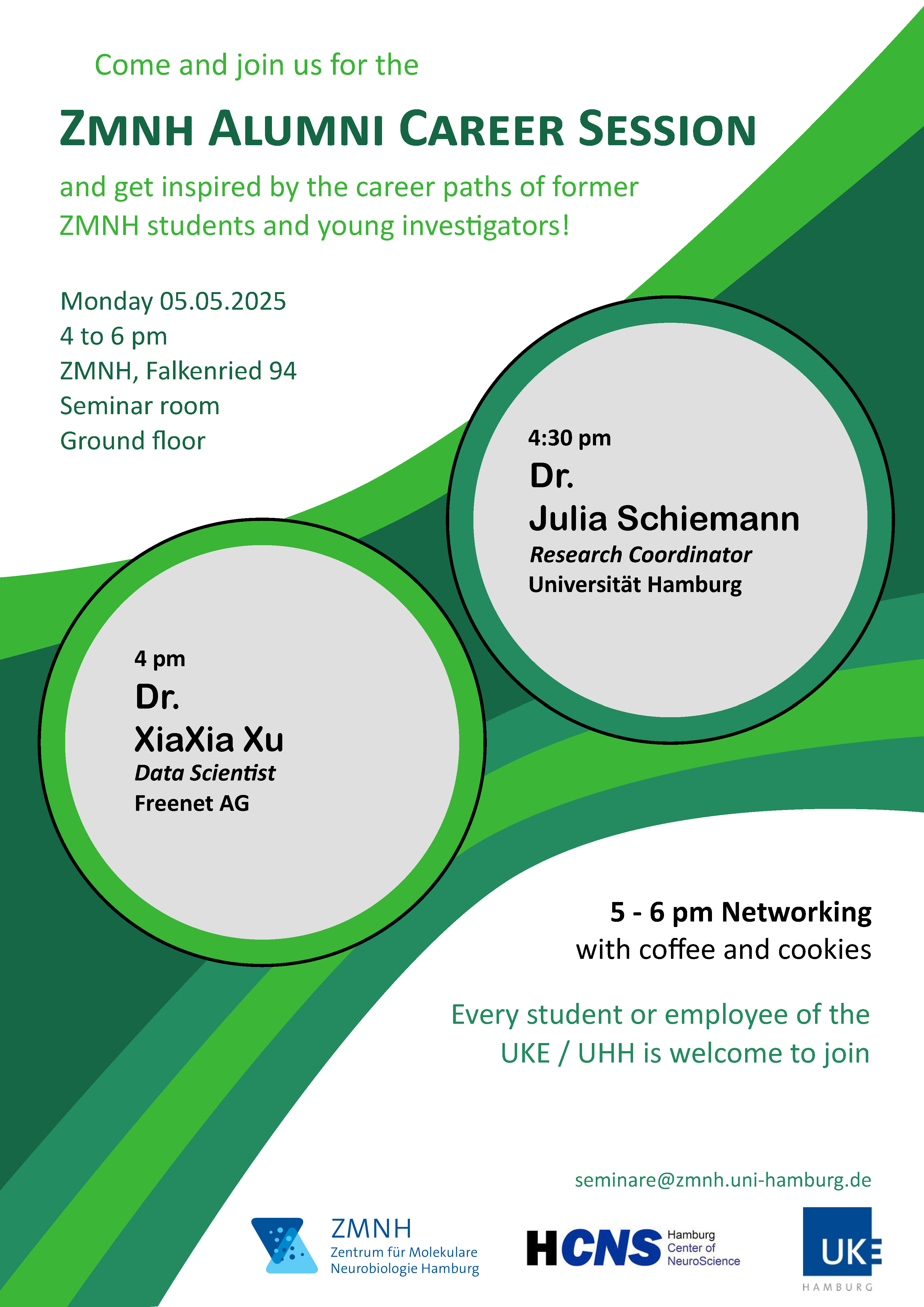
ZMNH Alumni Career Session
The next date is Monday May 5, 2025. We invited Dr. XiaXia Xu (Data Scientist, Freenet AG) and Dr. Julia Schiemann (Research Coordinator, University of Hamburg).
Dear PhD/MD/MSc students and early career postdocs of the UKE and UHH,
Ever asked yourself what comes next after your PhD/MD/MSc or how to achieve your career goals as a young scientist in or outside academia?
That's why we created the ZMNH Alumni Career Session, where former ZMNH employees talk about their career paths. We invite two speakers who will give a short talk and then be available for an extensive networking session to answer your individual questions.
The event will take place from 4 to 6 pm in the large seminar room of the ZMNH, Falkenried 94, ground floor.
We look forward to welcoming you to the ZMNH,
the organizing committee (Marcel Klein, Abdurahman Kuku, Jennifer Radwitz, Anne Willing, Tony Guoming Man)
NEWS
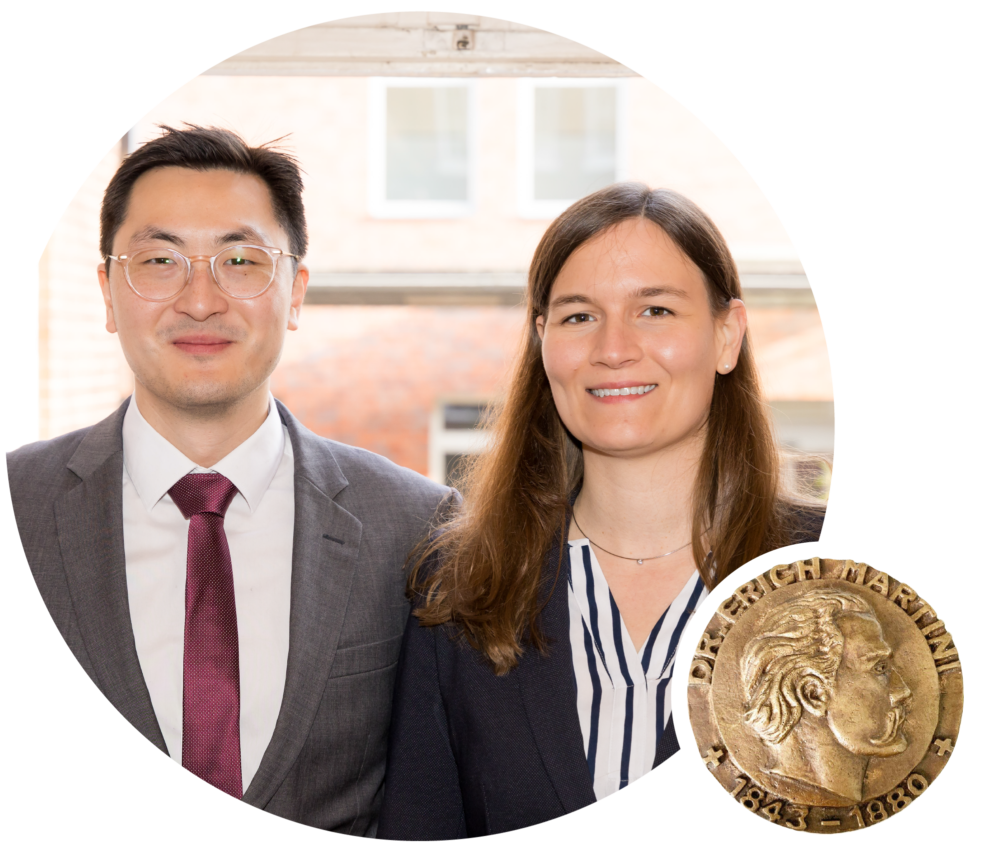
February, 2025
Dr. Martini Prize for ZMNH scientists
On February 12, Germany's oldest medical prize was awarded to six UKE researchers. The awards, endowed with a total of 10,000 euros, were presented by Science Senator Katharina Fegebank and Prof. Dr. Ansgar W. Lohse, Chairman of the Board of Trustees of the Dr. Martini Foundation.
The first prize was awarded to Dr. Christina Mayer and Dr. Marcel S. Woo, Institute of Neuroimmunology and Multiple Sclerosis. Their research focuses on a new signaling pathway in nerve cells that influences neurodegeneration in multiple sclerosis.
Multiple sclerosis (MS) is the most common inflammatory disease of the central nervous system (CNS) and a frequent cause of chronic disability in young adulthood. It is caused by the migration of immune cells into the CNS, which leads to permanent inflammation and damage to the nerve cells. The exact mechanisms that drive this process are not yet fully understood. Dr. Christina Mayer and Dr. Marcel S. Woo combined methods of genetic engineering in the preclinical model of MS and cell culture with methods of live cell microscopy and high-throughput sequencing to track down this process. They found that the protein STING is activated in inflamed nerve cells when there is an imbalance of electrolytes in the brain - a condition found in MS and other neurodegenerative diseases. This activation triggers a special signaling pathway that leads to iron-dependent cell death, known as ferroptosis. Using pharmacological or genetic interventions, they were able to block the signaling pathway and thus protect the nerve cells. Their research is a promising approach for new therapies against the loss of nerve cells in MS and other neurodegenerative diseases.
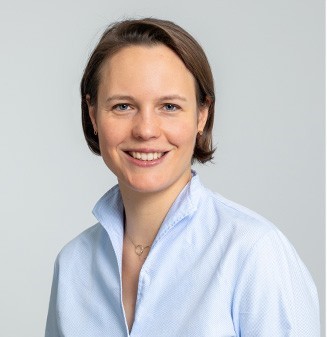
September, 2024
ERC starting grant for ZMNH researcher
Dr. Katarzyna M. Grochowska from the ZMNH has received an ERC Starting Grant from the European Research Council (ERC).
New monoclonal antibodies in development
In her project LEXSYN (“Lysosomal exocytosis of metastable proteins to control synaptic function”), Dr. Katarzyna Grochowska wants to better understand neuronal mechanisms during sleep. Proteins play an essential role in the synaptic activity of nerve cells. An imbalance in protein concentration leads to a disruption of neuronal function and is a hallmark of age-related neurodegenerative diseases. Dr. Grochowska and her team at the ZMNH will use a novel fluorescence microscope to investigate how sleep - a state associated with brain clearing and memory consolidation - affects protein concentration. LEXSYN is being funded by the ERC with over two million euros.
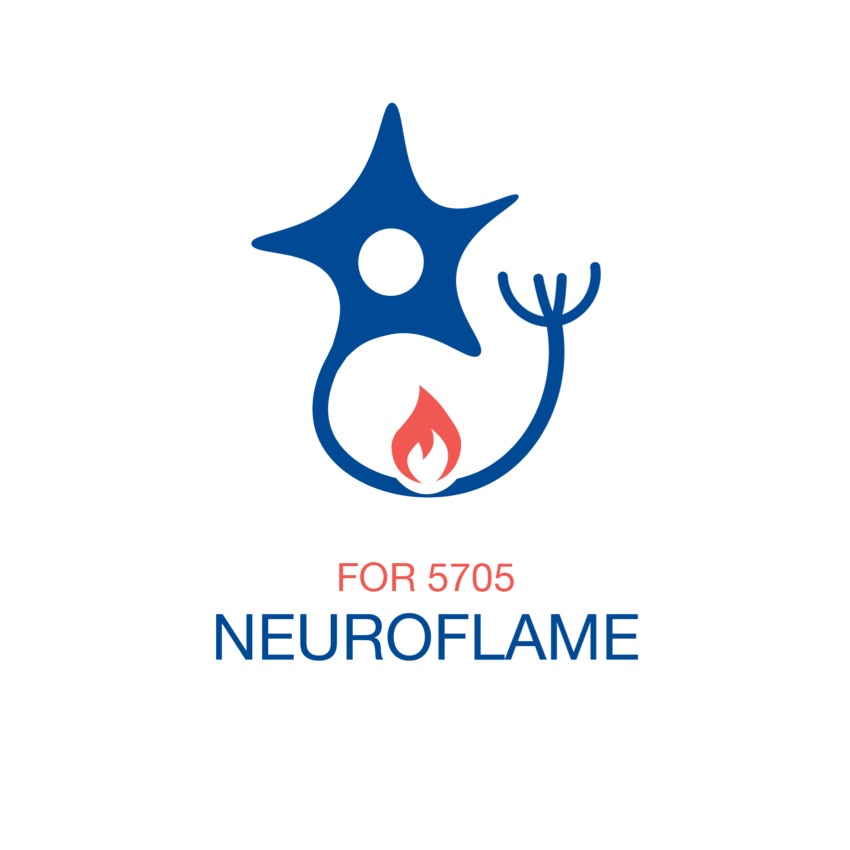
September, 2024
Neuroflame - New DFG funded research group
Scientists led by Prof. Dr. Manuel Friese want to develop more specific treatment methods for patients with multiple sclerosis and other inflammatory-degenerative diseases of the central nervous system. The German Research Foundation (DFG) is supporting the new research group in the field of neuroinflammation with six million euros over the next four years.
Research into new treatment options for neuroinflammatory diseases
Neuroinflammation plays a crucial role in diseases such as multiple sclerosis and in the progression of neurodegenerative, vascular and traumatic brain diseases. A detailed understanding of how these chronic inflammations affect the function and survival of nerve cells is still lacking. The research group “NeuroFlame - Defense and Demise of Inflamed Neurons” aims to close this knowledge gap by investigating neuronal defense strategies against inflammation and the damaging effect of inflammation on neurons. In this way, the researchers hope to contribute to the development of targeted treatments that protect neurons.
“We are very pleased about the funding from the DFG. As part of our consortium, we want to find out how inflammation of the nervous system damages neurons in the long term. These findings should lay the foundation for new treatment options for multiple sclerosis, Alzheimer's disease and other neurodegenerative diseases that are associated with inflammation,” explains Prof. Dr. Manuel Friese, Director of the Institute of Neuroimmunology and Multiple Sclerosis at the UKE and spokesperson for the research group.